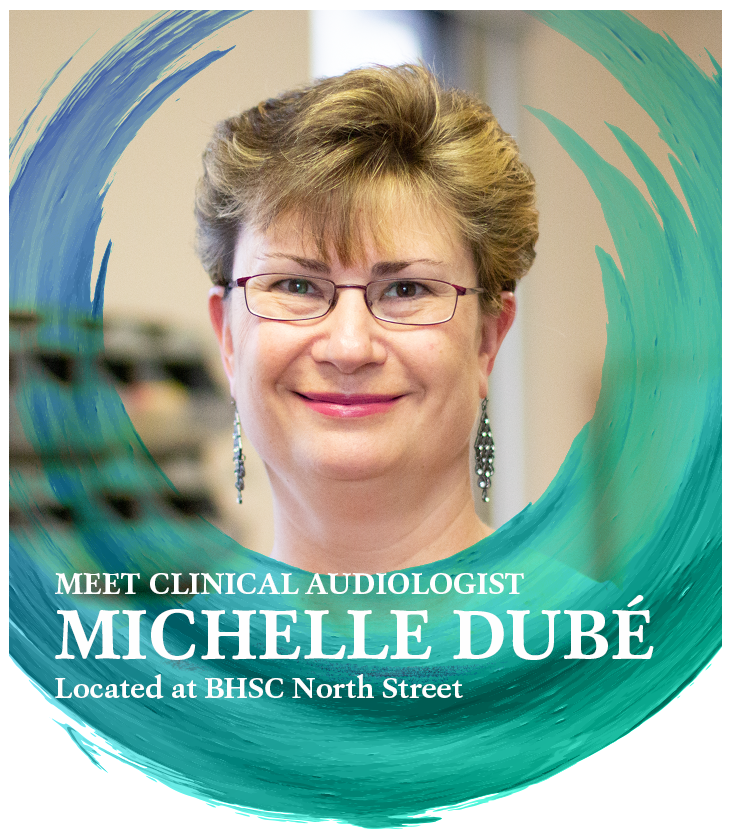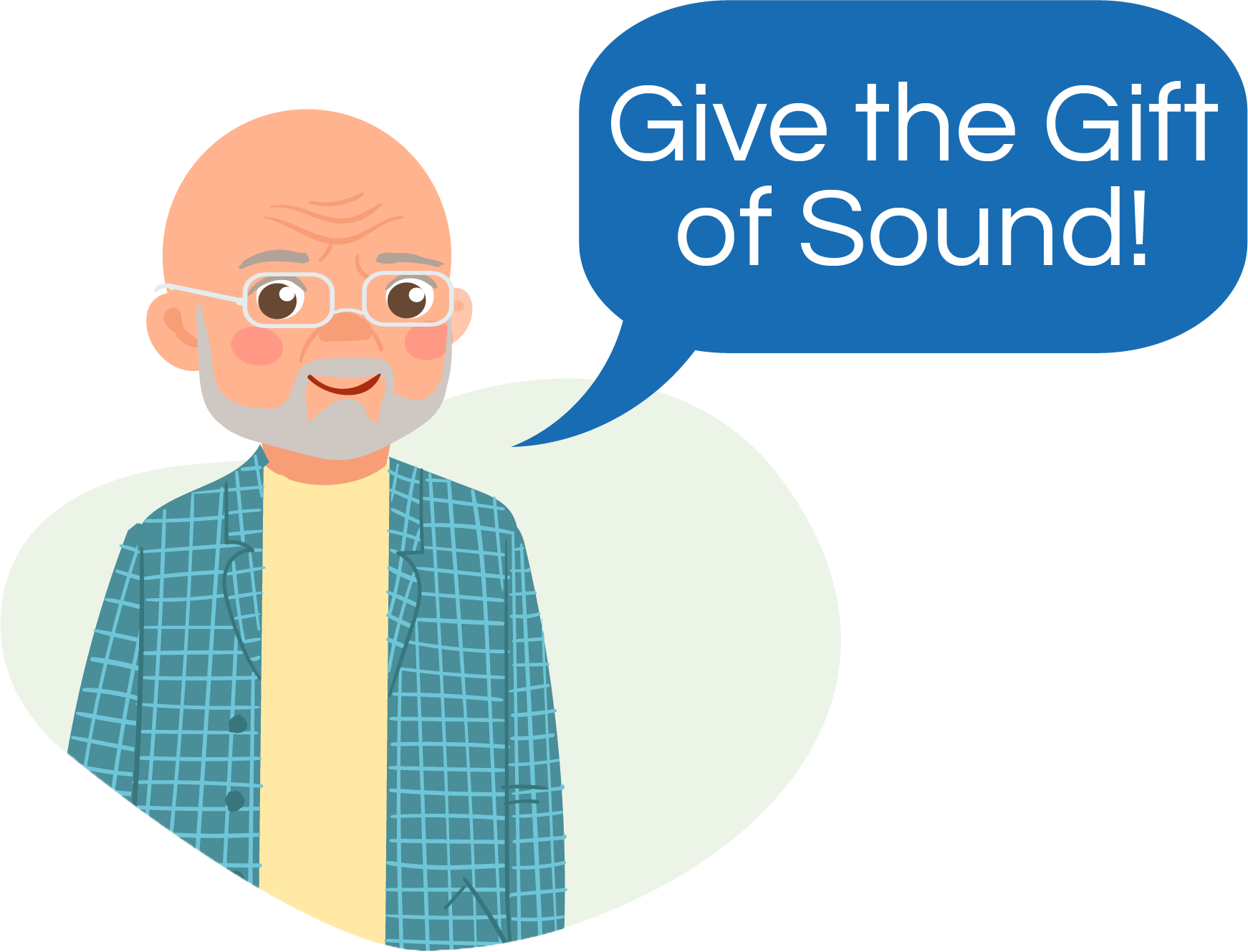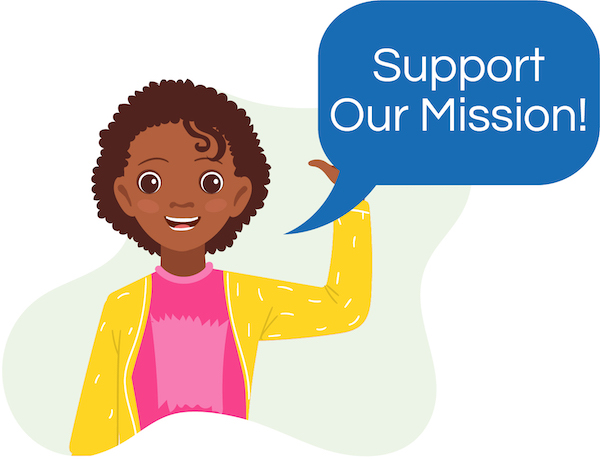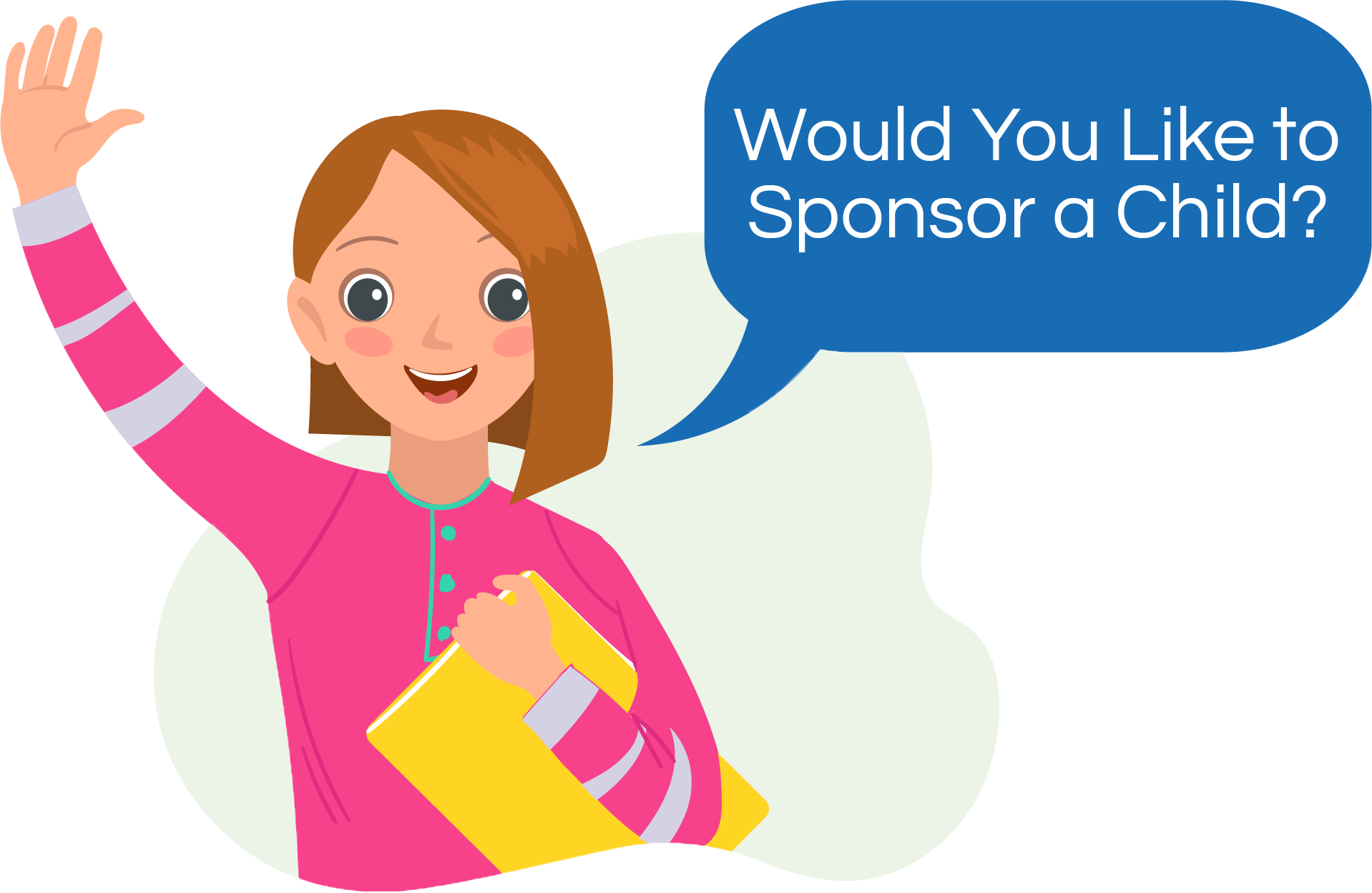Since BHSC is full of wonderful staff that are making differences in the lives of those we serve every day, we thought it would be fun if you got to know us better! Let’s learn about Michelle with her Fast Four about BHSC and being an audiologist with the Cochlear Program/Oral Deaf School.
Michelle has been with BHSC for over 15 years as a Clinical Audiologist with the Oral Deaf Education classrooms and the clinic. Michelle has seen BHSC change and grown on many levels including the Audiology department having only five audiologists when she started at three locations to now having 11 audiologist at four locations. In the Oral School classrooms Michelle makes sure that the childrens’ hearing aids, cochlear implants or Bahas are working properly. She often has to troubleshoot the devices and figure out why the device isn’t working. Michelle also programs the hearing aids, cochlear implants and Bahas for the students. Some of these children receive routine hearing tests from Michelle and since some of these children are very young, the tests may have to be done a few times over a couple of days.
In the clinic Michelle sees patients of all age groups – four week old babies to 100 year old adults. She performs specialized hearing tests (ABR) on babies who fail the newborn hearing screening in the hospital and tests toddlers, teenagers and adults of any age. Michelle fits hearing aids and cochlear implants and sees patients for routine hearing aid checks and cochlear implant MAPPings.
What is a cochlear implant?
A cochlear implant is recommended when a person had worn hearing aids and audiological testing has indicated minimal benefit from the aids. Once the test scores qualify a patient for a cochlear implant, we review the three implant companies with the patient. There is an internal device that is surgically implanted into the cochlea by one of our local ENT doctors. The external piece sticks to the internal piece with a magnet and a processor (slightly larger than a hearing aid) sits on the ear. The age for cochlear implants starts as young as 12 months old. Adults as old as 80 or 90 can also receive cochlear implants as long as they qualify and are healthy to undergo the surgery. There are three audiologists at BHSC who see cochlear implant patients. We have been to trainings with all three of the companies and often the company representatives come to the center for training. Cochlear implants are a small and specialized part of audiology. In college, one does not specialize in cochlear implants but rather takes courses and applies to centers or hospitals that see implant patients.
What is your favorite memory at BHSC?
I have so many favorite memories but one that comes to mind pretty quickly is an adult cochlear implant patient of mine. He and his wife came in with their young grandson for the activation of his cochlear implant. Their grandson was in town visiting and wanted to come with his grandparents to the appointment – he and his grandpa are best buds. After activating his cochlear implant the grandpa cried because he could hear his young grandson talking for the first time. I expected them to be happy, as many patients are but when he shed a few tears it really warmed my heart.
What is a challenge being an Audiologist?
It’s challenging and emotional to tell parents that their child (no matter the age) has a hearing loss and how it affects their child. This is a very emotional part of my job and it hasn’t gotten any easier after 15 years. But I know that the technology and services are the best they’ve ever been and that their child has an unbelievable chance to succeed. I work with an amazing team of audiologists, speech therapists, teachers and teachers-of-the-deaf. Parents just have to take that leap of faith and trust us.
What advice would you give to young people who want to enter into your field?
The ever improving technology really allows us as audiologists to change lives for the better! Technology has changed dramatically in the last 15 years, even in the last five. Being able to give hope to patients who have withdrawn socially from their family and friends is very rewarding. Giving them a solution (hearing aids or cochlear implants) is an amazing reward.
Bonus Question: Do you have a mentor or are you a mentor at BHSC?
Joanne Hammer, AuD, who has been an audiologist even longer than I have, was and still is my mentor. She has helped to shape my knowledge with cochlear implants.
Now I have the ability to pass that knowledge along to another BHSC audiologist. I get to mentor and help shape her knowledge in regard to cochlear implants. I also mentor students who are in the audiology graduate program at UB. Every semester I have a student who will spend two days with me. I’m able to share with them the techniques that work for me when testing young children and how to program hearing aids differently for children compared to adults.
As an audiology department as a whole, we learn from each other and help one another through tough times. When new hearing aid products are released we share the feedback from our patients so we can continually improve our service and knowledge.




